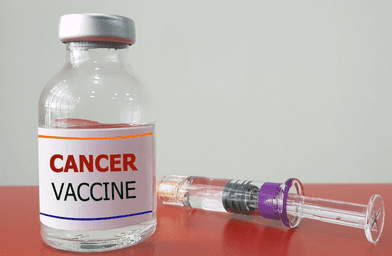Russia is preparing to launch one of its most ambitious medical endeavours in recent years: a personalised cancer vaccine designed to target malignant cells using a patient’s unique tumour data. The development signals a major leap forward in oncology and individualised treatment, according to state-run RT and comments made by Alexander Gintsburg, director of the Gamaleya Research Institute of Epidemiology and Microbiology.
The vaccine — which utilises messenger RNA (mRNA) and artificial intelligence — will begin experimental use in melanoma patients, Gintsburg confirmed. Clinical trials are set to be conducted at two of Moscow’s leading oncology centres, the Blokhin Cancer Center and the Hertsen Research Institute. The vaccine will be produced by the Gamaleya Center, known internationally for its role in developing the Sputnik V COVID-19 vaccine.
“In accordance with the plan approved by the Health Ministry, we are preparing to begin experimental treatment using the cancer vaccine based on neoantigens in a group of melanoma patients.”
Unlike conventional cancer treatments, this vaccine is entirely personalised. It cannot be standardised or mass-produced in the traditional sense because it is tailored for each individual.
“The drug is entirely personalised, created specifically for each patient using their unique tumour data, and cannot be used for anyone else,”
Gintsburg explained in an interview with RIA Novosti.
This approach is made possible by artificial intelligence systems that analyse the genetic composition of a patient’s tumour and design an mRNA-based vaccine to stimulate a precise immune response. The immune system is then taught to recognise and destroy cancer cells by targeting tumour-specific neoantigens, using specially primed cytotoxic lymphocytes.
Though initially focused on melanoma, the team behind the vaccine is expanding its application to include other hard-to-treat forms of cancer such as pancreatic, kidney, and non-small-cell lung cancer — all of which are typically resistant to chemotherapy and associated with poor prognosis.
“This is a fundamentally different process from the registration of standard drugs,”
Gintsburg noted, explaining that the Russian government has introduced a separate regulatory framework specifically for this new type of treatment. Unlike traditional pharmaceutical approvals, this framework accommodates the highly individualised nature of the therapy. The Gamaleya team is working closely with the Health Ministry under these new rules.
The process from tumour sequencing to vaccine production reportedly takes about a week, made possible by AI-enhanced systems that expedite the identification of appropriate immune targets. Early results from animal studies and limited human trials have reportedly been promising.
As the world moves increasingly towards precision medicine, Russia’s entry into the field of personalised cancer treatment mirrors trends in the United States and United Kingdom, where similar mRNA-based cancer vaccines are currently undergoing clinical evaluation. Studies in those countries have yielded encouraging data, including improved immune responses and increased survival rates in patients with melanoma and glioblastoma.
What sets the Russian initiative apart is its promise of free access for citizens. In December, health authorities confirmed that the treatment will be distributed at no cost to Russian patients. Despite the estimated production cost of 300,000 rubles (approximately USD 2,869) per dose, the government intends to bear the cost as part of its broader public healthcare commitment.
“This vaccine aims to treat cancer patients rather than prevent tumour formation,”
said Andrey Kaprin, director of the Radiology Medical Research Centre under the Health Ministry. He clarified that the vaccine is not preventive, like those used for viral infections, but therapeutic — focused on eradicating existing cancers.
There are an estimated four million cancer patients in Russia, with roughly 625,000 new cases diagnosed annually, according to the Ministry of Health. A treatment of this scale, if proven safe and effective, could mark a turning point in the nation’s oncology programme.
Moreover, Russia’s efforts have begun to attract international interest.
“Several foreign medical institutions have reached out to express a desire to collaborate,”
Gintsburg disclosed, suggesting that the vaccine could serve as a foundation for cross-border research partnerships in immuno-oncology.
Nonetheless, the momentum is significant. With trials beginning soon and the groundwork already laid, Russia appears to be moving steadily towards a future in which personalised vaccines could become a pillar of cancer care, not just for melanoma, but potentially for some of the world’s most lethal cancers.

















